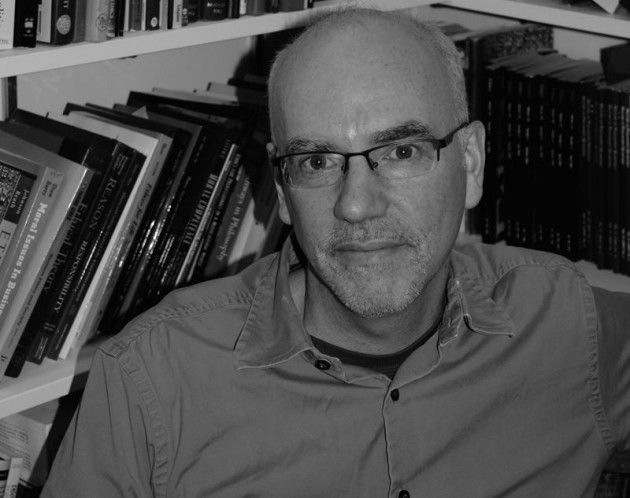Office Hours: David McCabe
Assistant Professor of Philosophy David McCabe recently published Modus Vivendi Liberalism—a book which tackles the problems facing traditional political philosophy justifying the “liberal state” and tries to offer a new way forward for the liberal project. The first edition of the book was published by the Cambridge University Press and is available in the Colgate Bookstore.
Modus Vivendi Liberalism is a synthesis of McCabe’s work on liberal political theory; work that as time passed has led to some alterations in his thought.
“This book represents the culmination of lots of years of thinking about liberal states,”McCabe said. “It also represents a departure from my earlier years.”
The book’s main focus, the liberal state, is defined by two distinct characteristics according to McCabe. The first condition is that the government cannot lead the people toward particular philosophies or values; rather, the liberal state allows the people to freely seek their own personal fulfillment. This explains the liberal state’s strong defense of personal liberty, as well as its anti-paternalism. The second is that whatever argument justifies that posture by the state must be one that can persuade all reasonable citizens. In McCabe’s view, this second condition, involving justification, significantly complicates the ease of achieving the first.
“The deep diversity within liberal states – on questions about the meaning of life, religious beliefs, conceptions of the good; and so on – makes the task of publicly justifying distinctively liberal features extremely difficult,” McCabe said.
The first part of the book samples the various influential attempts to defend the liberal state in a manner satisfying these two conditions, ultimately finding that these approaches all fall short in some way.
“The figure of John Rawls is whom I am constantly engaging with in some way,” McCabe said. “But the current literature on liberal theory is also extraordinarily rich, and one of the challenges in writing the book was to impose some order on that complex literature.”
Having examined these flaws, the second half of the book tries to offer a new way forward, finding that liberalism as a second-best solution that citizens can accept. The title, “Modus Vivendi” or “way of living” indicates an agreement to disagree and reflects this compromise.
“I try to outline a particular vision of liberalism that leaves in place the familiar structural features of the liberal state, through an argument that can secure the assent (though sometimes only grudging consent) of all different citizens,” McCabe said. “Having sketched this, I look at its implications in two particular areas: gender equality and compulsory education. [These] both seemed urgent public issues, and were as well rich and rewarding to work on.”
As McCabe wrote the book, he discovered that many of his prior views on the validity of the liberal state and liberal theory had changed.
“I was surprised that my thinking about the success of the liberal project had shifted so much from when I was a graduate student,” McCabe said. “I came to believe that I probably hadn’t registered the full force of the criticisms of liberal projects as a younger man. [In writing the book] I found many strands of the liberal project problematic in some way and I was looking to offer some way forward.”
McCabe credits many students and faculty at Colgate in shaping his views and furthering debate on liberal theory.
“Two chapters of this book are direct results of senior seminars I taught, and several other parts of the book resulted from discussions in other political philosophy classes,” McCabe said. “I’ve also had many discussions with my colleagues at Colgate and these have shaped my thinking in substantial ways.”
His work on this book has led him to a number of other issues arising from liberal theory that he hopes to address in future projects.
“The concern with public justifications has led me to think more deeply about the status of the commitment to publicity in the face of claims for government secrecy in nations that believe they face unprecedented security challenges,” said McCabe. “I’m also interested in exploring our shifting conceptions of, and increased tolerance for, policies which before this point had been considered firmly beyond the pale – torture and assassination, for example. I’m quite interested in trying to try to sort through these issues right now.”




